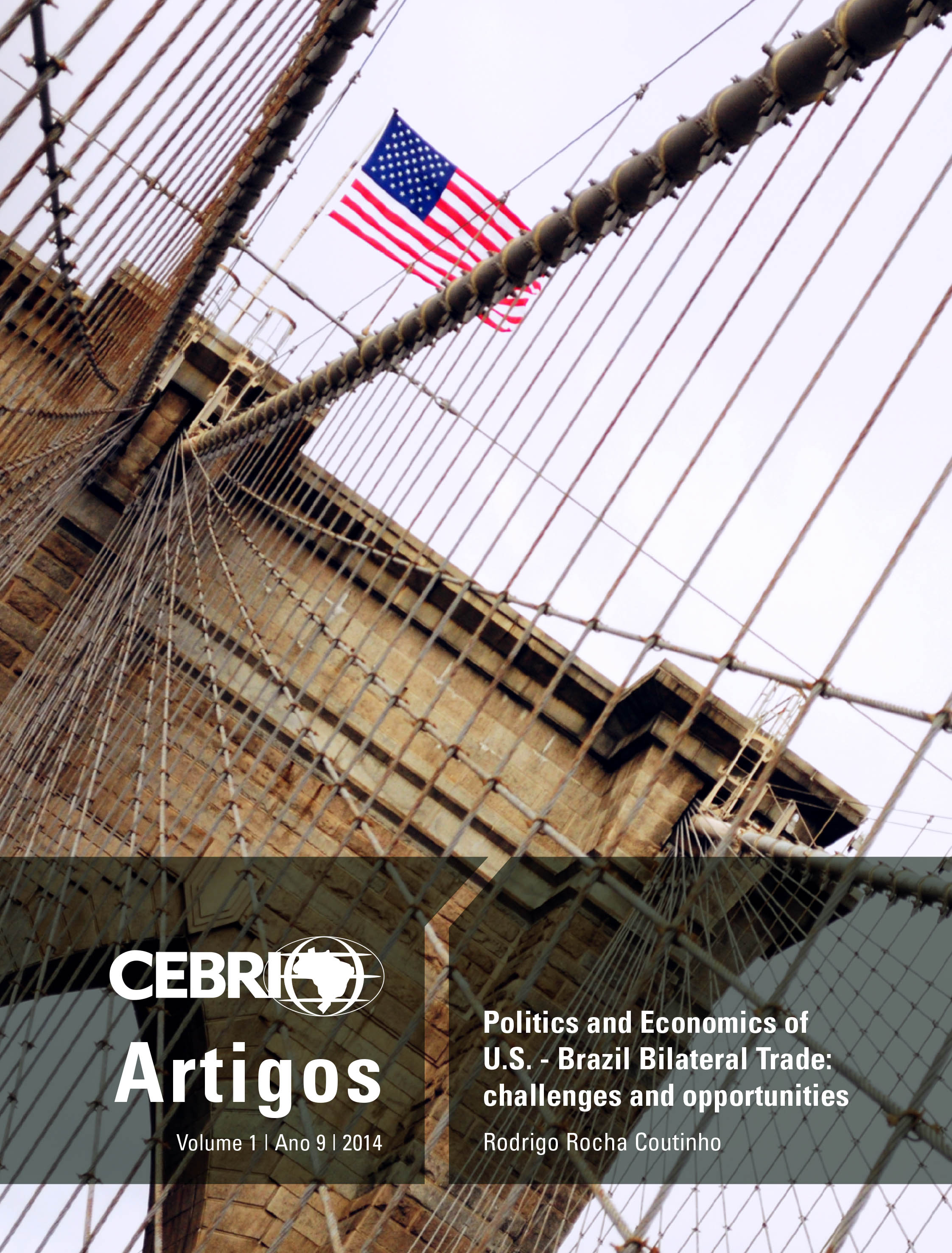Articles
Politics and Economics of US-Brazil Bilateral Trade: Challenges and Opportunities
- 28 august 2014
This paper aims at better understanding bilateral trade between the United States and Brazil, and the possible impact it might have on the economic development of both countries. International trade underwent profound transformations throughout the centuries. In the second half of the twentieth century, it took a great impetus with the development of new technologies and the globalization of markets. This process of globalization has been responsible for integrating national economies through trade and direct foreign investments, and it has had a significant impact on the economic development of nations, offering new challenges and opportunities. As a result, nation-states are urged to search for alternatives in order to better insert themselves in the process, by becoming more competitive. In this work, we will examine bilateral trade between the United States and Brazil, and will investigate how an increase in trade, if complementary rather than competitive, could be beneficial for both countries.
This paper aims at better understanding bilateral trade between the United States and Brazil, and the possible impact it might have on the economic development of both countries. International trade underwent profound transformations throughout the centuries. In the second half of the twentieth century, it took a great impetus with the development of new technologies and the globalization of markets. This process of globalization has been responsible for integrating national economies through trade and direct foreign investments, and it has had a significant impact on the economic development of nations, offering new challenges and opportunities. As a result, nation-states are urged to search for alternatives in order to better insert themselves in the process, by becoming more competitive. In this work, we will examine bilateral trade between the United States and Brazil, and will investigate how an increase in trade, if complementary rather than competitive, could be beneficial for both countries.


